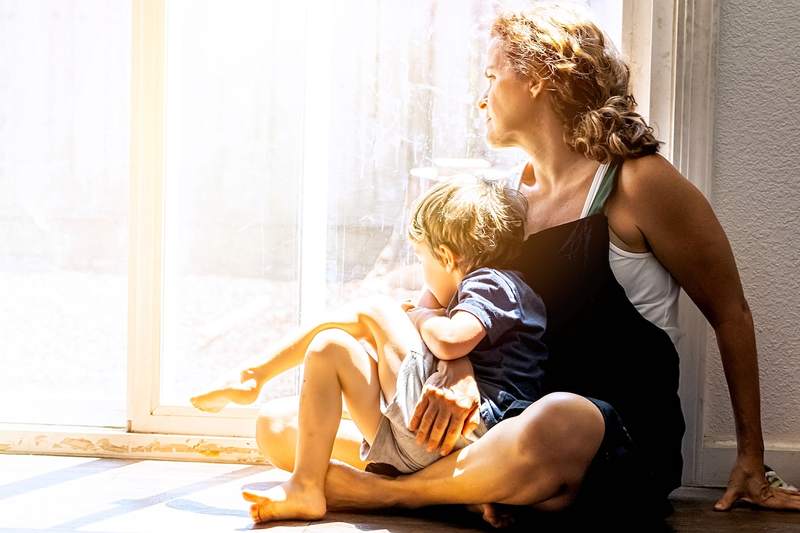What is house poor? The expressions “house poor” and “house broke” refer to homeowners spending more than they can afford on housing costs, which can include mortgage payments, property taxes, homeowners insurance, and maintenance and utility costs.
Being house poor can leave you with very little money for reaching major financial goals or meeting day-to-day needs. Let’s walk through a more detailed definition of “house poor,” along with strategies for avoiding and recovering from this financial pitfall.
What Is The Meaning Of House Poor?
At the beginning of 2024, more than 37% of homeowners with an active mortgage were spending above their means on housing costs. Here are some indicators that your financial situation fits the definition of house poor:
- You regularly worry about whether you can afford your monthly mortgage payment.
- You frequently dip into your savings account to cover the full monthly payment.
- You don’t have an emergency fund and don’t have enough money left over each month to start contributing to one.
- You don’t have the space in your budget to contribute to a retirement fund.
- The cost of homeownership prevents you from activities such as attending concerts, traveling or engaging in a hobby.
- You spend a large percentage of your income on housing.
What’s Your Goal?
Buy A Home
Discover mortgage options that fit your unique financial needs.

Refinance
Refinance your mortgage to have more money for what matters.
Tap Into Equity
Use your home’s equity and unlock cash to achieve your goals.
How Does Somebody Become House Poor?
Before stepping into homeownership, it can help to do some careful planning and make a financial assessment. Some causes of becoming house poor are more avoidable than others.
Next, we’ll outline the major risk factors and what you can do about them.
Buying A Home That’s Too Expensive
Home buyers often get caught up in the idea of owning their “dream home” and end up buying a house way out of their price range. Just because you’re approved for a certain mortgage amount doesn’t mean you should max out your budget.
Some experts say housing costs shouldn’t exceed 30% of your monthly gross income. If you spend more than that, you may put yourself at risk of becoming house poor.
When calculating how much house you can afford, it’s a good idea to err on the side of caution and look at houses on the lower end of your budget.
Underestimating The Costs Of Homeownership
Many home buyers tend to forget about some of the costs that come with owning a home. Not only are there upfront costs to consider, but homeowners should also plan for recurring and infrequent expenses associated with homeownership.
Upfront costs to think about when buying a home include:
- A deposit or down payment
- Lender fees
- Title fees
- Appraisal and inspection fees
- Escrow fees
The costs don’t end there, though. Some other recurring, potentially rising and infrequent expenditures include:
- Property taxes
- Insurance
- Home repairs
- Maintenance
- Homeowners association (HOA) fees
Changes In Cost Of Living
Your cost of living won’t always remain the same. Utility costs may rise, the price of food can fluctuate, your bank could increase the interest rate on your credit cards or you may overspend on entertainment.
All of these factors can seriously impact your ability to afford your mortgage payment if you’re not prepared.
Experts recommend planning for at least a 10% increase in the cost of living when creating your budget to buy a home. This will help ensure that you can meet your financial obligations, including homeownership expenses, even if you encounter unexpected circumstances.
Losing A Job
As many as 75% of homeowners say they wouldn’t be able to afford their housing expenses if they lost a job.
If you’re worried about a potential job loss, make sure to have an emergency fund in place that can cover at least 6 months’ worth of expenses. This will help ensure you won’t be forced to sell your home or declare bankruptcy if a job ends.
Ready To Become A Homeowner?
Get matched with a lender that can help you find the right mortgage.
How To Avoid Being House Poor
If you’re thinking about buying a home or already own one, you can take various steps to avoid being house poor. Let’s explore a few of them.
Determine Your Debt-To-Income Ratio
To all but eliminate the possibility of becoming house poor, you should first determine your debt-to-income ratio (DTI).
Your DTI measures how much debt you have compared to your income. DTI comes in two forms: front-end DTI and back-end DTI. You can calculate your front-end DTI by dividing your monthly mortgage payment by your pre-tax monthly income. Back-end DTI divides a more comprehensive list of expenses by your pre-tax monthly income.
So, what’s a good back-end DTI? As a rule, you shouldn’t spend more than 36% of your income on debt. This includes monthly debt payments such as those made on personal loans, credit cards and a mortgage.
Here’s how the DTI scale might look:
- 0 – 36%: Good
- 37 – 41%: OK
- 42 – 49%: Poor
- 50 – 100%: Bad
Lower Your Loan-To-Value Ratio With A Higher Down Payment
If you’re looking to buy a home, making a higher down payment can help you not be house poor.
A higher down payment will lower your loan-to-value ratio (LTV), which is the amount of money you borrow from the bank compared to the value of your home.
For example, if you buy a $200,000 home with an $80,000 down payment, your LTV would be 80%. However, if you only put down $10,000, your LTV would increase to 95%.
Putting a little bit more down can help in a few ways. For example:
- You can avoid paying private mortgage insurance (PMI) with a down payment of 20% or more on a conventional loan.
- The smaller your loan, the smaller your monthly payments will be.
- You’ll have more collateral for refinancing in the future.
- There’s less risk for banks, which means they may give you more favorable loan terms.
Opt For A Longer-Term Loan
If you opt for a 30-year loan instead of a 15-year loan, your monthly payments will be significantly lower.
You’ll pay more interest in the long term, but you can use that extra cash flow to make improvements to your home, invest in other assets, save for retirement or build an emergency fund. Speaking of emergency funds, they’re the next item on the list.
Create An Emergency Fund
A leaky roof, a serious illness or a layoff could be devastating if you’re not financially prepared.
Ideally, you should have 3 – 6 months’ worth of living expenses saved so that you’re covered if something unexpected pops up.
This will help you avoid becoming house poor from an emergency. And, even if everything goes smoothly, it’s always nice to have a cushion.
Recast Your Mortgage
If you already own a home and are worried you might be on the verge of becoming house poor, recasting your mortgage might be a solution.
Recasting is when you make a lump-sum payment to your mortgage lender toward your principal balance to lower your monthly payments. Recasting can also free up some cash, which you can use to pay down other debts or invest elsewhere.
Recasting differs from refinancing, which involves taking out a new loan with different terms to lower your monthly payments.
Just keep in mind that making the lump-sum payment requires having the cash to do so.
Live Within Your Means
Knowing how you spend your money is critical to avoiding the house-poor trap – and establishing a budget can provide great insights into your income and spending.
Once you know where your money is going, you can make adjustments to ensure your housing costs aren’t eating up your entire paycheck each month.
Housing costs should take up no more than 30% of your monthly income. If they’re consuming more than that, it’s probably time to make some changes.
Take The First Step To Buying A Home
Find a lender that will work with your unique financial situation.
What To Do If You Are House Poor
If you’re having trouble paying your bills and affording basic necessities after you’ve made your monthly housing payment, there are ways you can ease the burden and ultimately get to a more financially healthy spot.
Here are a few actions worth considering.
Cut Back On Discretionary Spending
The very first step you should take if you’re house poor is a deep dive into your finances. Simply being more conscious of what you’re spending your money on can help reduce or eliminate unnecessary expenses. Canceling unused gym memberships or streaming services, for example, is a great place to start.
Tap Into Your Savings
If you have some extra cash, whether from a previous job or gifts from family members, it may be time to use it.
Using your savings to pay off other debts or recast your mortgage may help you curb your monthly expenses enough to stay above water, but it comes with risks. House-poor people often have to spend their savings to cover essentials or unforeseen expenses, but this could put you further behind in the long run.
Pick Up A Side Hustle
In some situations, homeowners might look for an extra source of income. Picking up a second job, a side hustle or some gig work can give you a little extra cushion for monthly mortgage payments.
Refinance Your House
Refinancing can help homeowners get out of financial trouble. This may be an option if you don’t have cash on hand to recast your mortgage. Take into account the following facts, though, before pulling the trigger on a refinance:
- A number of fees are associated with refinancing.
- You may lose equity in your home.
- It might take longer to pay off your mortgage.
- Timing can be difficult because interest rates fluctuate.
- The lower payments that could result from a refinance may not ultimately be worth it.
Refinancing can be a good option for those who purchased their home with high interest rates or have a strong need to reduce their monthly payments.
Sell Your Home
If you’re seeking a more serious and permanent solution, you may need to sell your home and buy a less expensive one. Although selling a home can be a stressful process to go through, it may ultimately be your best way out of this situation.
House Poor FAQs
Here are answers to questions that homeowners often ask about being house poor – specifically, how to avoid it.
If you’re struggling with payments and don’t have a lump sum of money to recast your mortgage, you may only be able to refinance your home loan.
The Bottom Line
It’s possible for almost anyone to get in over their head financially. If you feel house poor or feel like you’re headed in that direction, take the appropriate steps to remedy the situation and get your finances back on track.

Tai Le
Tai Le is a longtime member of the editorial team at Quicken Loans, focused on supporting home buyers and homeowners as they navigate the process of getting a mortgage and refinancing. He works closely with experts to create relevant content for people seeking reliable financial information. Originally from Long Beach, California, Tai lived in Miami for many years before purchasing a home with his wife in the Tampa Bay area of Florida, which gave him a firsthand understanding of the challenges and decisions involved in the home buying journey. With extensive experience in personal finance, insurance and travel, Tai has also helped build notable brands like Carnival Cruise Line and LowerMyBills.












